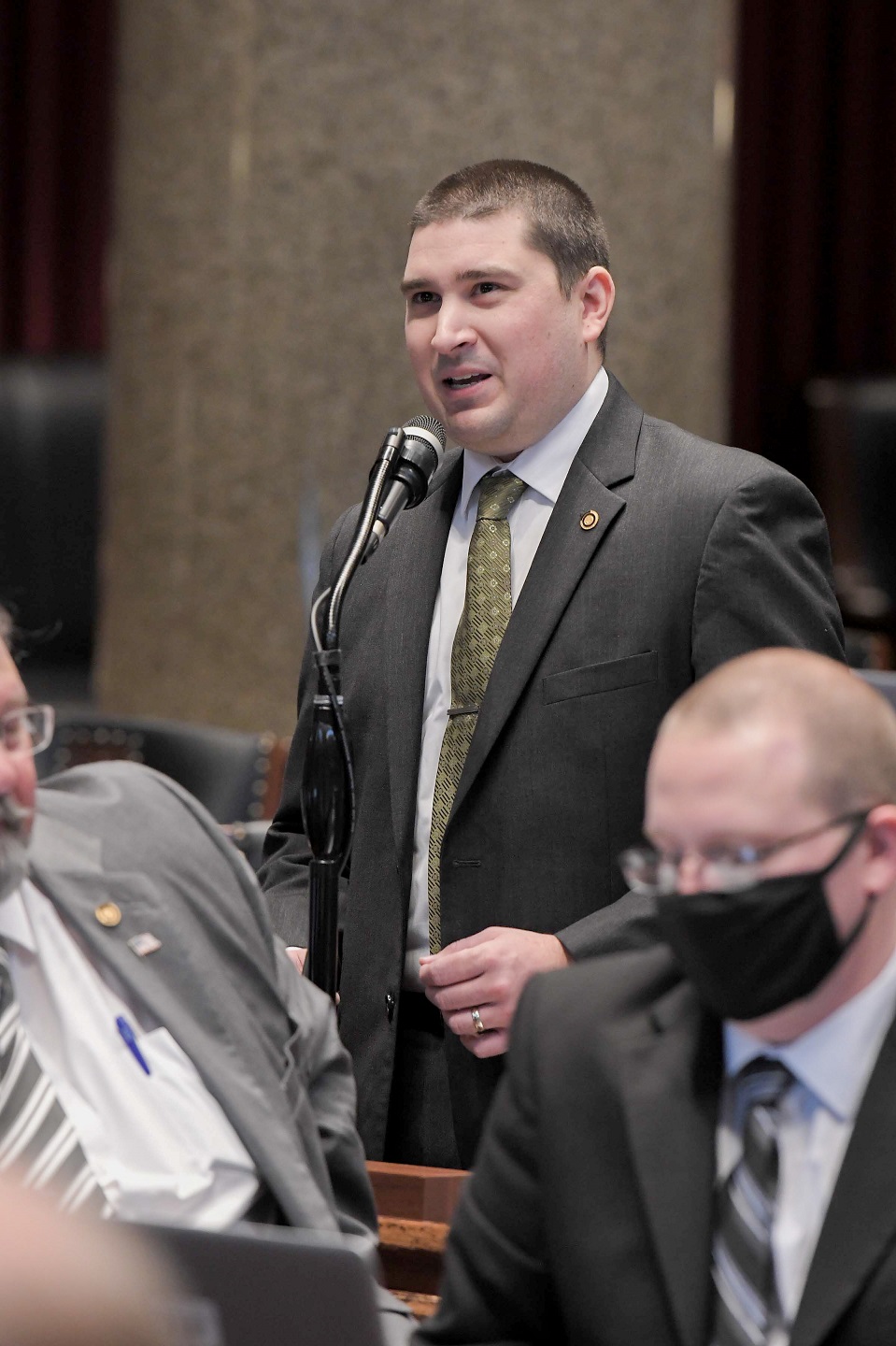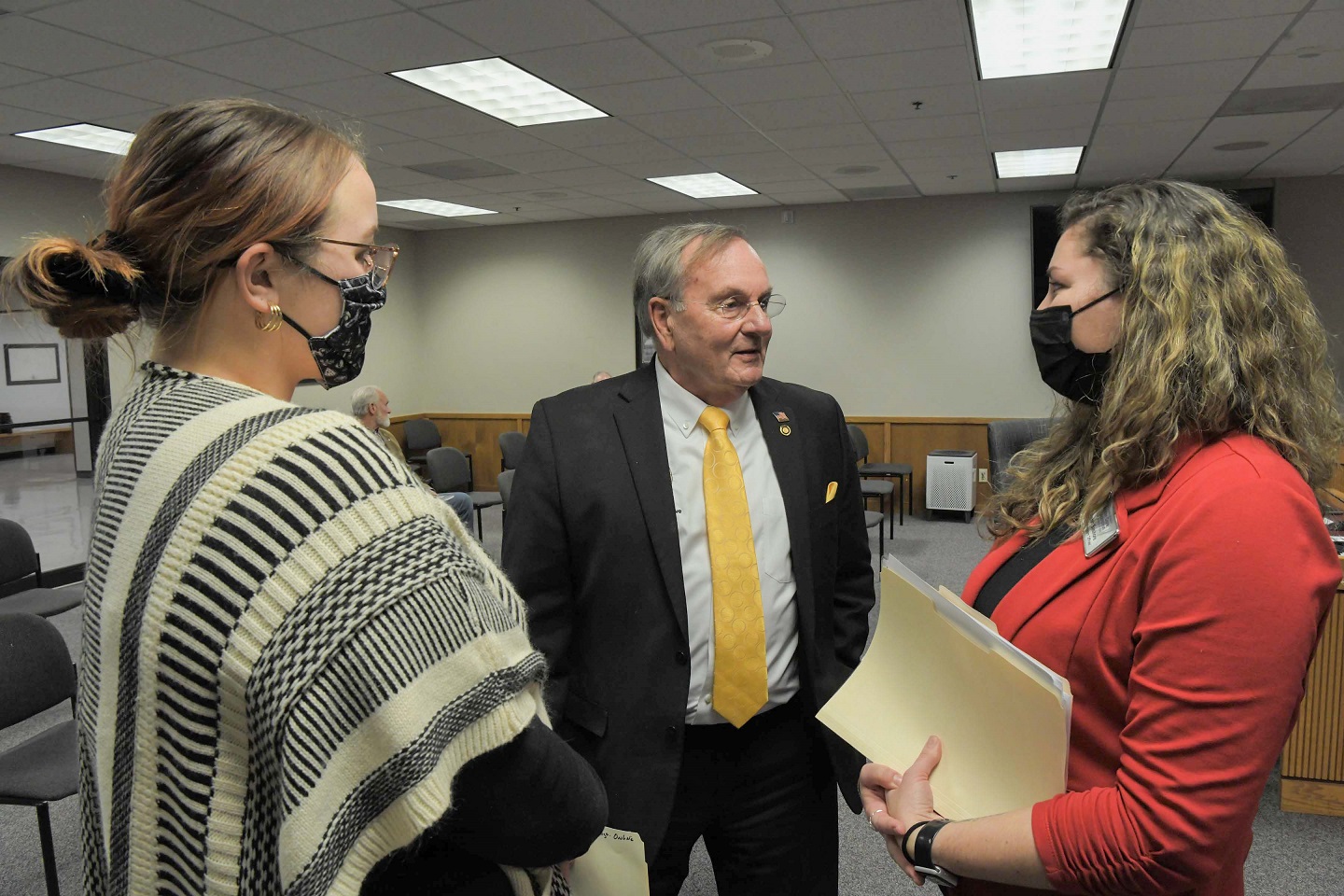Women entering Missouri prisons could have a chance to bond with their infant children while incarcerated, under a proposal that House members will be asked to consider in the session starting in a few days, but that concept is not new. Prison nursery programs have existed in other states for years, and in some cases for decades.
Ellisville Republican Bruce DeGroot is sponsoring one of the bills that would create a prison nursery program in Missouri, House Bill 1897. He said as a state representative he doesn’t always have the resources to provide extensive data that can help to make a case for one of his proposals, but with this bill there is ample data on what a difference it’s made in other states.
“Everything I’ve heard about this bill has been extremely positive, as it turned out in other states.”
DeGroot said while he remains passionate about tort reform, which he believes protects and supports employment opportunities, this is a bill that can have an immediate impact on individual Missourians.
“There are some bills that are just so directly related to people and their situations in life and this is one of those.”
Springfield Republican Curtis Trent will also propose prison nursery legislation. He says as the opening of the new session draws near he’s excited about pursuing this legislation.
“Of course the legislative process is there to vet these ideas and make sure there are no unintended consequences, but so far the response that I’ve gotten has been very positive, very encouraging, and the data that we have from other states and the input that we have from other people in this state so far has been overwhelmingly positive,” said Trent.
Illinois began its Moms and Babies program in 2007 at its Decatur Correctional Center. Non-violent offenders are allowed to keep their babies with them until the age of two. The Illinois Department of Public Health provides health education classes as well as lactation support and guidance. Up to eight mothers and babies are able to live in the facility in safety and with staff support and counseling, and prison staff are trained on the needs of pregnant women and mothers. Other incarcerated mothers are also able to help care for the children in the nursery.
As of 2017, more than 90 women had gone through the program. Only two had returned to prison within three years of release and only two were discharged from the program.
Maggie Burke was the warden at Decatur and managed the state’s women’s facilities until 2017. She said the program has been tremendous in her state and she thinks Missouri should absolutely begin its own.
“It’s a program that works. It’s a program that works for moms. Moms don’t come back to prison.”
“There is not a ton of research on prison nurseries, but what we do know is that it does reduce the recidivism for the women who go through the program. They are more bonded with their child and have more of a reason to stay on track when they get out.”
Debbie Denning, who was part of the exploratory team that created Illinois’ program and was Deputy Director for the department’s Women and Family Services Division, agrees with Burke.
“I absolutely would recommend that [Missouri] allow this program to happen, and I think that any concerns that legislators have can be addressed and really can help form the program,” said Denning. “It’s really important not only for the culture of the facility – it makes the administration happy, it makes the employees happy, but overall it’s the best thing for the baby and the mother, and the recidivism shows that.
Once the bond occurs the mother is much more motivated to be successful and the administration sees a shift in that facility, and facilities are extremely dark and hard to run and a lightness comes in that you just cannot believe.”
Burke said the programs in Illinois also take into account the unique needs of incarcerated women, who often are dealing with and need to recover from trauma.
“A lot of the women have experienced significant trauma throughout their lives which have led them down various paths of substance use, and so a lot of them have never been a parent without some sort of substance use … what we found was that women were able to raise a baby for the first time and bond with a child for the first time without that substance use,” said Burke.
“Part of our programming is parenting classes on learning how to be a better parent, but also part of our programming was kind of day care classes so that they would learn how you would take care of a child in day care. You would log when you changed a diaper, what kind of diaper it was that you changed, how much you fed them, how much they ate, what kind of food, what kind of drink, and how much naptime they took. You become better in tune with your child so when they come home they are better prepared to have more children if they do, just to be a better parent, a more attentive parent.”
Denning said in Illinois there were those who were skeptical about creating a nursery program, and she was proud to watch their attitudes change once it was in place.
“I had one sergeant … who was just awful about, ‘Why would we bring babies in prison,’ and ‘These women don’t deserve their children,’ and I put him on the committee. We had him, within six months on our committee, he was the first one that I had to say, ‘You can’t bring things in for the babies,’ because he was bringing in clothing and different things. It was just a complete turnaround.”
Denning continued, “I think that with anybody, when you see that nurturing environment and you see that these women bond with their children … when they started to begin to understand that our job wasn’t to punish, but really to rehabilitate and set this person up to be a parent, to feel that bond with their child, and then to go out and be able to be self-sufficient and not relying on the system. Once we were able to connect those dots, they were all over being positive about the program.”
Burke said the program benefits not only the women and children who participate, but the rest of the prison.
“The culture of the facility kind of changes. I don’t know if you’ve been into very many prisons but there’s just kind of a feeling when you go into the prison and most facilities don’t feel like a facility that has a bunch of babies in it.”
Among other states that have a prison nursery program is Nebraska, where, as of 2018, there had been a 28-percent reduction in recidivism within 3 years of a participant’s initial offense and a 39-percent reduction in participants returning to prison custody. From 1994 to 2012, Nebraska’s program saved that state more than $6-million.
Both Trent and DeGroot say they have talked to the Missouri Department of Corrections and the office of Governor Mike Parson (R) and received positive responses to this idea.
The 2022 legislative session begins January 5.









